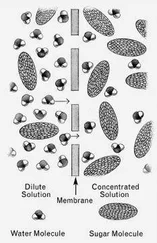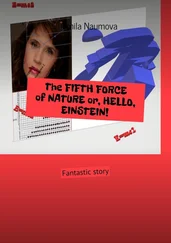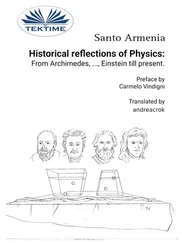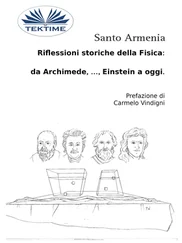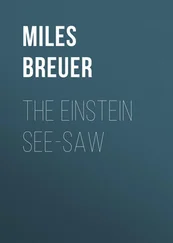The thoroughness had paid off. His thesis research became two papers in Physics Letters, a long review article in Physics Reports, and three invited papers, special invitations to present his work before large audiences at physics conferences at Snowmass, Catania, and Les Houches. These had made something of a splash. Roger had turned down several job offers, including an assistant professorship at Princeton, to take a postdoc job in the CERN Particle Theory Group. And that, along with the other theoretical triumphs which followed, had led to his present job at the SSC, presently the premier high-energy physics laboratory in the world.
Which, the way it looked now, might be as high as his rocket would rise. Roger looked around his new office, the walls already decorated with colorful graphs, cartoons, and travel posters. What the hell was he going to do? This was Wednesday. He was supposed to give a particle theory seminar on Thursday afternoon describing progress on his brilliant new approach to QCD, the technique that in the past weeks had turned to ashes. He had nothing to discuss except a handful of mathematical tricks that hadn’t worked. As he thought about it, he realized that in truth he hadn’t really had a workable idea in many months.
He was good, dammit. He knew that he was good. He was now supposed to be at the peak of his creativity and intellectual power. He was working in theoretical particle physics, the toughest, most competitive, fastest-moving, most intellectually demanding field of endeavor in the history of the human race.
But somehow his timing was off. Of late the ideas that his instincts told him were good, after months of effort, had turned out to be blind alleys. Other ideas that he’d originated and then rejected as obviously flawed had been reinvented later by others, and often those ideas had brought them recognition and even fame.
This job in the SSC Particle Theory Group was supposed to be his stepping-stone to a secure tenured faculty position at a top-of-the-line university or institute in the United States or Europe. But his stepping-stone was rapidly sinking into a quicksand bog.
He looked again at the broken surfaces on his workstation screen. The bloody thing refused to converge. There had to be some way, another trick, if only he were smart enough to find it.
His eyes drifted to his open desk drawer. He could see the black plastic box there. In it he had placed disposable diabetic syringes and the four vials of synaptine. Last night he had on impulse taken them… correction… stolen them from Susan’s laboratory. Even as he was doing it, he’d felt rather surprised at himself, as if it was someone else performing the act. Someone less honest than himself. He wasn’t in the habit of stealing from his friends, after all. He was bloody well not in the habit of stealing from anyone.
But Susan had discovered a drug that promised to significantly raise the level of human intelligence! And she was planning to squander it for years to come on the treatment of hopelessly retarded children and Alzheimer’s patients. She and her colleagues would administer the drug and take careful note of whether the poor souls that received it remembered not to pee their pants or drooled less or recognized one of their relatives unexpectedly. And meantime the rest of humanity, which was barely clever enough to find its shoes in the morning and keep from annihilating itself in the evening, must muddle along as best it could.
He now knew Susan well enough to understand that she was a very stubborn and dedicated woman. There was no way he could persuade her to let him test synaptine on himself as a “volunteer.” He’d hinted at this and had encountered a stone wall, receiving a canned lecture on medical ethics and the strictness and fairness of the rules concerning experimentation on human subjects.
He looked at the black box again. In most human endeavors high intelligence was useful but not really essential. Motivation and persistence worked almost as well, sometimes actually better. Roger remembered the friend at Cambridge who got rent-free rooms for serving as part-time manager of a block of flats. Once he’d had to pick a new maintenance person for the complex from a large number of applicants. So he’d given them all intelligence tests copped from the Psychology Department and selected the applicant with the lowest score. Claimed the person had made the best maintenance super ever.
But in theoretical physics, if you weren’t the brightest chap in the quad, the cleverest, trickiest, sharpest, most imaginative bastard in the business, then you were the dog’s breakfast. The difference was just a bit of extra intelligence, just enough to put you out in front of the pack. You knew it when you had it. And he’d had it, dammit. Before he’d left Geneva for Waxahachie, he’d had it.
But here, now, he was definitely the canine’s morning repast. And perhaps he would remain canine cuisine. From now on…
Perhaps he’d simply set his sights too high. Only one person could be the brightest particle theorist of the generation. Perhaps, after all, it wasn’t him. Perhaps he could go back to England and get a nice faculty job at some redbrick university with large teaching and administrative responsibilities and less pressure on research. He could become a gentleman lecturer who met with fawning undergraduates over coffee each afternoon to discuss the Nature of Structure. Roger grimaced, recalling a few of those.
Or perhaps he could get a well-paid programming job and move east to Wall Street or west to Silicon Valley, as some of his friends at Cambridge and CERN had done when they couldn’t make it as particle theorists. He thought of the prospect of driving his Porsche for an hour on the San Jose Freeway or the Long Island Expressway to a job where he made clever improvements to programs that drew better pie charts for business leaders.
No, by God! He’d rather die than do that. He had to wield the brick again, he needed to pound on a first-rate new problem, beating on it with an avalanche of ideas until it yielded results that came so fast he hardly had time to write them down. He had to.
Roger got up and closed the door of his office. He pulled up his trouser leg past the knee.
Then he took the black plastic box from the drawer and placed it on the desk. He knew well what needed to be done. One of his girlfriends at Cambridge had been a diabetic, and many times he’d watched her give herself an insulin injection as she explained how it was done.
Susan had given Elvis an intramuscular injection. The protein was stable enough, she said. The effect lasted longer if it was injected into muscle tissue rather than directly into the circulatory system. He stripped the wrapper from the hypodermic, fitted on the needle, selected one of the vials, and punctured its latex cap.
Then he paused. Susan had used half a milliliter on Elvis, he recalled. Should the dose be scaled by body weight or cortex area? That determines if I should use half a vial or the whole thing. Better play it safe and use cortex area, he thought, drawing half the contents of the vial into the syringe. Using his left hand, he wiped a patch on the inside of his left thigh with alcohol, then injected the protein. It was done. He withdrew the needle. A yellow droplet beaded its tip, a red droplet dotted his thigh. He wiped the spot with alcohol again and rolled down his trouser leg.
Roger breathed a sigh when his paraphernalia were safely placed in the black box and locked in the lower drawer of his desk. He sat, considered what he had done. He had injected himself with an untested experimental drug with completely unknown side effects. He could feel a slight tingling sensation spreading upward from his left thigh and minute twitchings of the muscles near the injection point.
Читать дальше




